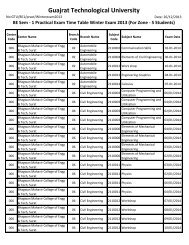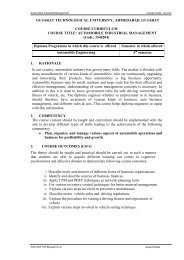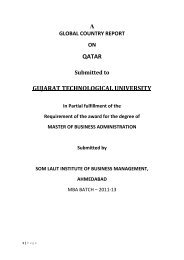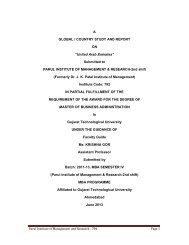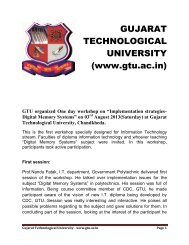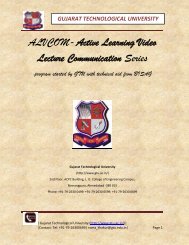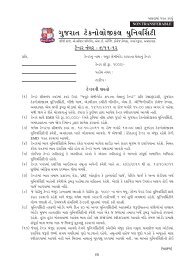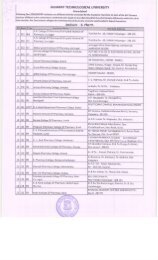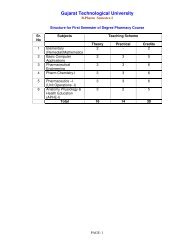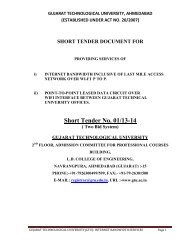751-Sabar Institute Of Management, Tajpur - Gujarat Technological ...
751-Sabar Institute Of Management, Tajpur - Gujarat Technological ...
751-Sabar Institute Of Management, Tajpur - Gujarat Technological ...
You also want an ePaper? Increase the reach of your titles
YUMPU automatically turns print PDFs into web optimized ePapers that Google loves.
Part-3: Indo-German Relations<br />
The framework for bilateral relations between Germany and India has been delineated in the<br />
Agenda for German- Indian Partnership in the 21st Century, which was adopted by the foreign<br />
ministers of the two countries in May 2000. This agreement was meant to give a structure to the<br />
deepening relations between the two nations that unfolded in the last decade of the 20th century.<br />
While focusing on economic, cultural, and scientific cooperation, the agenda also stipulated new<br />
fields of cooperation to address global challenges and work towards the mutual fulfillment of<br />
each other’s interests. The ten-point agreement became the origin and point of reference of all<br />
future agreements between India and Germany. In order to assess the merits and achievements in<br />
Indo-German relations over the past years, one should first look at the expectations and goals<br />
which were originally formulated by the agreement of 2000, and the following joint declarations<br />
between India and Germany in 2006 and 2007. The first point on the agenda dealt with the<br />
improvement of bilateral political relations between the two countries by expanding meetings<br />
and dialogue between officials of both nations. The governments concluded that the exchange of<br />
visits between high-level officials was crucial to maintain and deepen the good relationship<br />
between India and Germany. Meetings of foreign ministers on an annual basis were stipulated,<br />
and beyond that, consultations between officials at various levels were sought to be extended.<br />
Also, both governments wanted to encourage dialogue between nongovernmental actors of the<br />
two countries. Surprisingly, the second point on the agenda did not relate to economic and trade<br />
relations, but dealt with issues of security policy and disarmament. By giving high priority to this<br />
subject, a first clear step in shifting the focus of relations towards a deeper strategic partnership<br />
was made. Both governments declared their commitment to worldwide disarmament and to nonproliferation,<br />
but recognized that there existed different opinions on how to achieve these goals.<br />
Consultations on this matter should address nuclear non-proliferation and disarmament concerns<br />
more often to achieve convergence between the different positions of both countries. India and<br />
Germany stipulated to engage in confidence-building and conflict prevention and include<br />
research institutes from both sides in the dialogue on security and strategy cooperation. With<br />
regard to economic relations, both sides declared their commitment to further deepen and<br />
strengthen the economic ties between India and Germany by opening markets, simplifying<br />
procedures, and overcoming judicial and administrative barriers of bilateral trade.<br />
29



